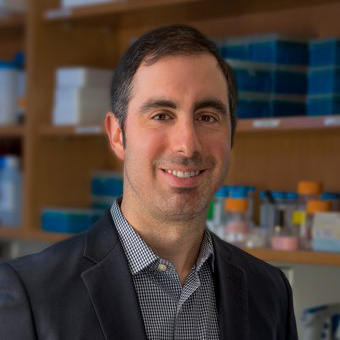 Jeremy Herskowitz, Ph.D.
Jeremy Herskowitz, Ph.D.
Alzheimer's disease (AD) is a progressive brain disorder that gradually deteriorates memory and cognitive abilities, eventually impairing the performance of basic tasks. One startling aspect of AD is that it typically remains dormant until one reaches the advanced age of 65 or older.
The Department of Neurology at the UAB Heersink School of Medicine focuses on identifying the disease's underlying causes, developing optimal treatment approaches, and conducting further research.
Jeremy Herskowitz, Ph.D., the Patsy W. and Charles A. Collat Professor of Neuroscience in the Department of Neurology, has a research interest in Alzheimer's Disease and discusses symptoms, research initiatives of the department, and more surrounding the disease.
Q: What are the key symptoms and knowledge individuals should know regarding Alzheimer's disease?
The typical early symptom of Alzheimer's disease is having trouble retaining recently acquired information. Additional symptoms include memory loss that interferes with daily activities, challenges in planning or problem-solving, difficulty interpreting visual images, withdrawal from work and social environments, and significant changes in mood and personality.
When you observe one or multiple signs indicating potential cognitive changes, it can be challenging to determine the appropriate course of action. It is normal to feel uncertain or anxious about discussing these changes with others; however, these are essential health matters that require evaluation by a medical professional. Taking these proactive steps helps identify the underlying cause of these changes.
Q: What research initiatives is the department engaged in regarding Alzheimer's disease? What are the objectives and goals?
The department aims to discover a cure for Alzheimer's disease (AD) and potentially save individuals from its debilitating effects. However, before achieving this ultimate objective, it is crucial to comprehend the mechanisms behind the development of resilience in some individuals and to explore therapeutic methods that can induce resilience naturally within the population.
Interestingly, research has shown that approximately one-third of people exhibit no signs or symptoms of dementia, despite similar pathologies to Alzheimer's disease when examined through autopsies. These individuals have naturally developed resilience to AD, raising a compelling question: what sets them apart from others more susceptible to the disease?
To address these questions and challenges, the Department of Neurology team at UAB focuses on studying Alzheimer's disease and Frontotemporal dementia (FTD). We are dedicated to identifying enhanced therapeutic targets and striving to discover more efficient treatments for these devastating disorders. By delving deep into the underlying mechanisms, the team aims to unravel the secrets of resilience and develop interventions to promote stability in individuals at risk of AD and FTD.
Read more about UAB Alzheimer's Disease research.